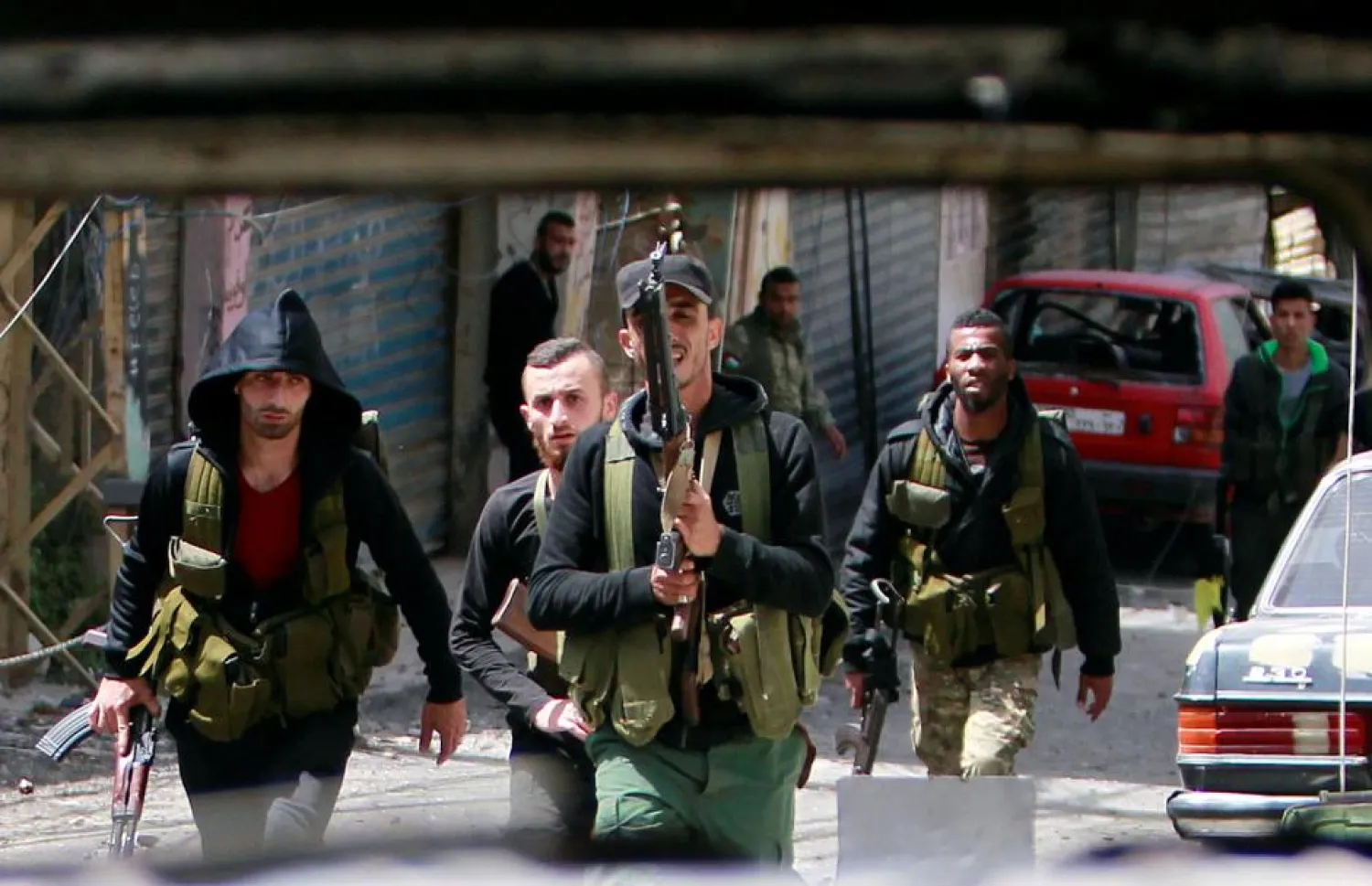In September, the Lebanese army intelligence carried out a security operation in the Ain al-Hilweh Palestinian refugee camp in southern Lebanon that led to the arrest of the religious leader of the Abdullah Azzam Brigades – known as Mufti Al-Sharia - Bahaa al-Din Hajjar, who was involved in the bombing of the Iranian embassy five years ago.
A year earlier, the General Security arrested members of a terrorist network, who communicate with their operators from Lebanese areas, especially in the camps of Ain el-Hilweh, Burj al-Barajneh and Shatila, where they were receiving instructions to execute suicide bombings and assassinations, as admitted by the detainees.
In 2016, the military intelligence arrested one of the most notorious terrorists, Imad Yassin, who was wanted by 40 judicial warrants, in an operation that was classified as a major achievement in the Ain el-Hilweh camp, without a single drop of blood being shed.
Before ISIS’ involvement in the Palestinian camps in the wake of war in Syria, these camps have long been a breeding ground for Islamic extremism, from Esbat Al-Ansar group, which was accused of assassinating four judges in Sidon around 20 years ago, to Fatah al-Islam sparked the Nahr al-Bared camp clashes in 2007.
Palestinian Researcher Hisham Dabsi told Asharq Al-Awsat: “Immediately after 1982, no Palestinian Islamic organization was established, except for the war on the camps that the Amal Movement launched in 1985 under the direction of the Syrian regime.”
“When the siege was imposed on the Burj al-Barajneh camp in the southern suburbs of Beirut, I was inside the camp. I felt the strong reaction of the Palestinians against Amal Movement, in exchange for a great appreciation for the role of Sayyed Mohammed Hussein Fadlallah, who issued a fatwa forbidding fighting the Palestinians.”
“A group of young Palestinians went to Fadlallah’s mosque in Haret Hreik, listened to his Friday sermon and supported his path. At that time, the idea of the emergence of Hezbollah was taking shape.”
According to Dabsi, small groups in Burj al-Barajneh and other camps have distinguished themselves from the existing factions and considered that the solution to the Palestinian-Israeli conflict lies only through Islamic resistance. The majority of these groups remained within the existing organizations, mainly Fatah, until the first uprising in Palestine in December 1987.
“With the stone uprising, for the first time, the Palestinian Muslim Brotherhood formed the Islamic Resistance Movement (Hamas). Palestinians in the Muslim Brotherhood have been screened in asylum countries to form their organization,” he recounted.
“The Islamic Jihad movement, which does not have Brotherhood origins, was formed by a group of Islamists who were students, headed by Fathi Shikaki, Ziad Nakhala and Mohammed Najjar, who was wanted by the US. The latter was welcomed in Beirut’s southern suburbs. They were in contact with Iran through Shikaki, but when Iran asked him to adopt Shiism, he separated from the group.”
Speaking to Asharq Al-Awsat, Sheikh Maher Hamoud, head of the World Union of Resistance Scholars, said: “I believe that talking about terrorist bases in the camps is not accurate and accusing the Palestinian Islamic factions of all the crimes is much exaggerated.”
He went on to say: “It is true that all kinds of extremism have emerged in the camps, but they have declined. In general, extremists are supported by many parties, hoping to absorb them and return them to the right path.”
“In any case, extremism in the Palestinian environment has declined after the defeat of Ahmed al-Assir and the downfall of ISIS in Syria.”
A source from Fatah movement said: “After the formation of armed Islamic movements in the camps, rivalry with Fatah started with funding from the Syrian intelligence. The ‘Ahbash’ and Esbat al-Ansar carried out acts of armed sabotage and assassinations.”
However, according to Hamoud, the reason behind the rise of Islamic extremism in a previous period, “is due to the absence of a Lebanese and Palestinian authority inside the camps capable of enforcing the law, as well as the abundant presence of sporadic weapons, which are exploited politically.”
Asked about the financing of extremist Islamists in the Palestinian camps, the Fatah source noted that the funding of these movements depended on the parties that wanted to employ them.
“There is no regional or international intelligence service that has not intervened in these groups, either to obtain information or to carry out some dirty work,” the sources said, pointing that Qatar’s role had declined and then completely stopped.
“Currently, Islamic extremist groups are being nurtured by Iran and Syria. Lebanese state intelligence also uses them in different ways to obtain information. In short, these factions are funded and operated within agendas, as needed,” the Fatah sources concluded.
















